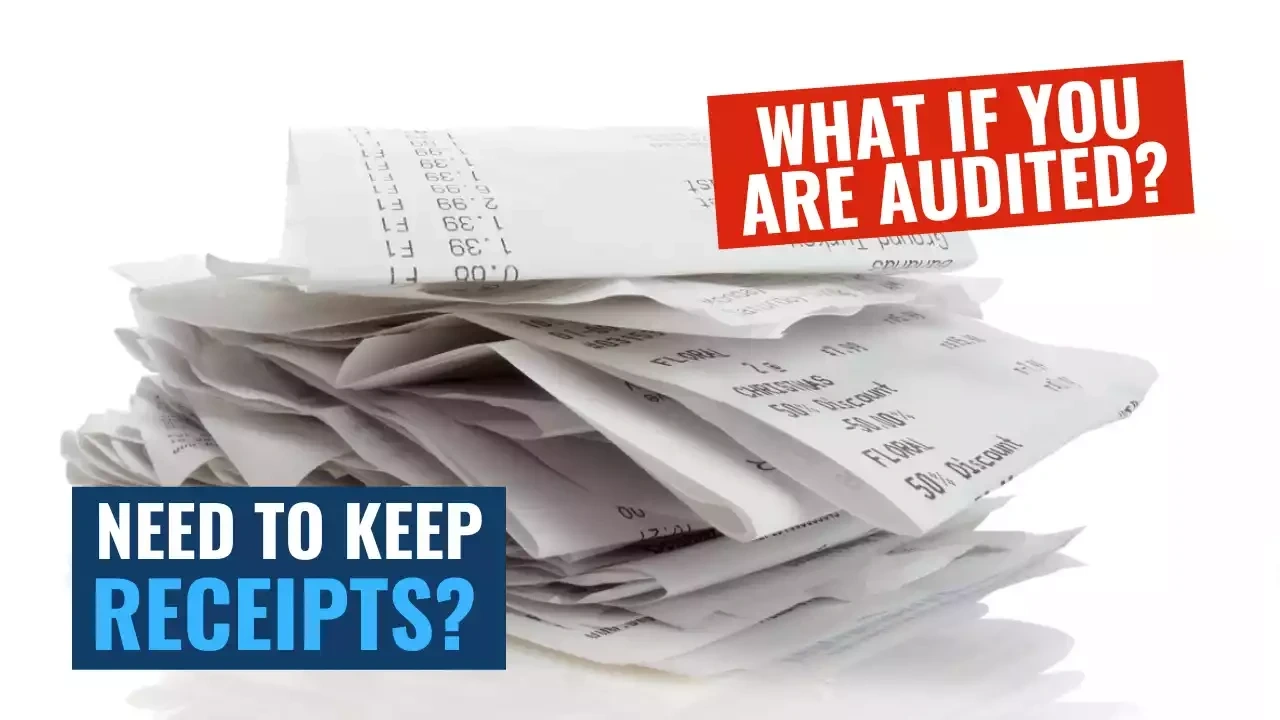Can You Claim Expenses Without A Receipt?
Jul 20, 2022
Having a receipt is always the best record keeping, however we do not always have receipts for everything. Especially in those circumstances where we are trying to catch up on a few years back taxes.
Generally, if you do not have a receipt you cannot make a claim as a business expense. If claimed, without the evidence from receipts, you leave yourself vulnerable in your record keeping in the unfortunate circumstance you get audited years later.
The government expects every tax payer and business to retain actual receipts for expenses, not bank or credit card statements. All a bank or credit card statement proves is that a payment was made, it does not verify the nature of the expense. But you can still claim your home business tax write-off when you do not have a receipt.
Keep in mind that it is your responsibility is on you to demonstrate that the expense is for business use, and the amounts have been recorded and calculated accurately in your record keeping.
Documentation Required For Meals And Entertainment Expenses
Meals and entertainment expenses are frequently flagged for audit as they can be very difficult to substantiate “after the fact”, especially years later as the details fade with time.
When it comes to meals and entertainment expenses, the details most often overlooked include 5 things (3 of them are already on the receipt).
- Name of place
- Date
- Amount
- Who with
- Business Discussed
Poor Record Keeping May Not Bring Good Results
Without the evidence from receipts, any claimed business expenses may not be accepted in the event you were to be audited.
According to an article in the Financial Post titled Always keep your receipts — the CRA tells its auditors not to believe you without them, referring to the importance of providing evidence to justify our expenses.
The Financial Post article was referring to the Income Tax Audit Manual, and under the heading “Auditing expenses claimed without supporting vouchers,” that CRA’s auditors are told that if expenses are not supported with the appropriate documents, “disallow the expense unless there is other satisfactory audit evidence to support the amount claimed.”
What this means is that in the situations where you do not have a receipt don’t worry, you can still get away with using credit or debit card statements, written records, and even photos of the item(s) purchased. Do what you can for record keeping and make notes of the nature of the expense, and claim as much as you can to get full benefit of all those tax write-offs.
The Income Tax Audit Manual referred to in the Financial Post article is for Revenue Canada Agency (CRA) employees involved in income tax audits of small and medium-sized businesses. In the US the IRS has the Audit Techniques Guide for IRS examiners to use as a tool for identifying potential tax issues.
What Are Your Chances of Being Audited?
According to the government, your chances of being selected for an audit are higher if you are:
- Self-employed or a sole proprietor (statistically, they are most often audited)
- Service providers such as construction, retail, travel and tourism, and food sector business
Th government considers these businesses as a higher risk for being involved in the underground “cash economy” and they generally are very poor in their record keeping, including receipts. Each year, the government randomly selects businesses to investigate. This can be as simple as sending a letter to request copies of receipts for expenses claimed.
If you happen to be is selected for a random audit, you will certainly want to have all your record keeping in order and bulletproof.
Bullet Proof Your Record Keeping
Fortunately, there are ways to ensure you are capturing all your tax write-offs and keep bulletproof records, without all the time and hassle of being burdened with paperwork. If you have a business, it’s more important to focus on “the business” of the business, not the paperwork in the business.
This is why I created a course and productivity system specifically for the home-based business. The complete system that guides you through what you can claim and how to record it more efficiently, claiming every legitimate deduction and paying less tax - without all the overwhelm and burden, stress that claiming tax write-offs brings to most people.
Say Goodbye to Tax Stress
Proven Tax Strategies, Audit-Proof Tools, and Year-Round Support for Home-Based Entrepreneurs




